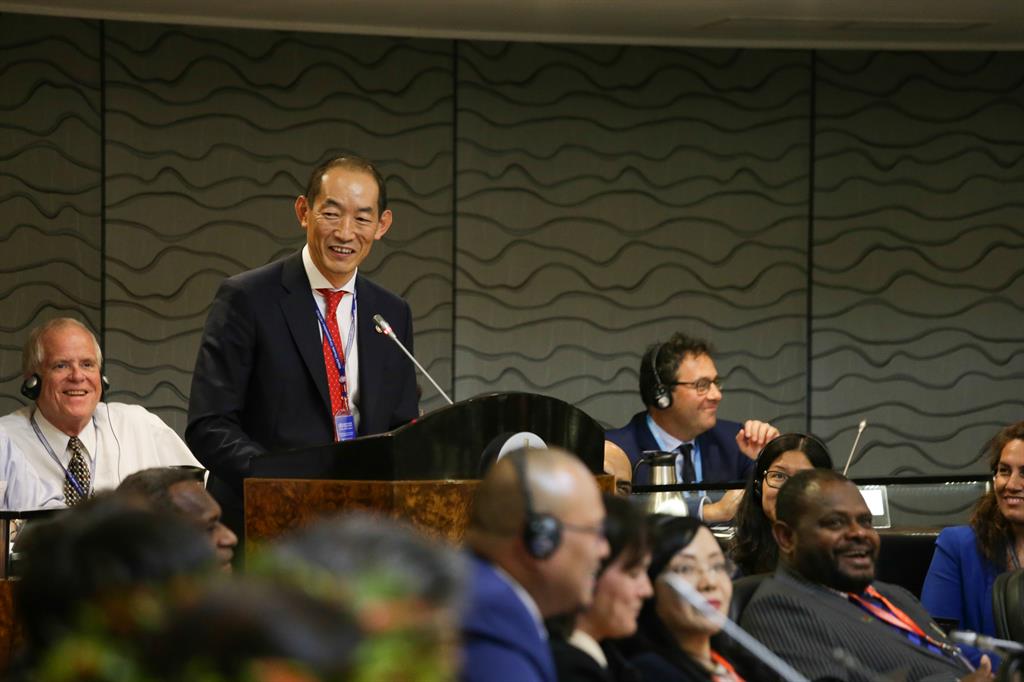KUALA LUMPUR, May 15 — A country’s Covid-19 testing capacity is not the sole determinant of effective outbreak management, but is part of an overall strategy, a World Health Organization (WHO) official said.
When asked about whether the Western Pacific region, which includes Malaysia, is doing enough testing to emerge from a lockdown, Dr Takeshi Kasai, WHO’s regional director for the Western Pacific, explained that contact tracing and quarantine measures are the core of coronavirus outbreak management.
“Testing is the capacity that every country should invest and increase. However, testing itself is not important, but it should be a part of the overall response strategy,” Dr Kasai told a virtual press conference organised by the World Economic Forum yesterday.
“Testing is a very important component as part of the response, but what is important is the testing should trigger public health interventions,” he reiterated.
Dr Kasai added that active contact tracing, as well as surveillance of influenza-like illness (ILI), severe acute respiratory infection (SARI), and pneumonia are all important information as parts of public health intervention.
Malaysia’s Ministry of Health (MOH) recently said Covid-19 cases detected in its surveillance of ILI and SARI cases have been dropping. Malaysia, however, uses manual contact tracing, and places all coronavirus patients, regardless if they need treatment or not, in hospital until they test negative for the virus.
Dr Kasai further commented that in the “new normal” that the world now lives in, the public has heightened awareness about personal hygiene, where it is no longer just for self-protection, but also for the protection of the people at large.
“I think that (this heightened awareness about personal hygiene) is the key to bring up both health and economy,” said Dr Kasai.
Dr Kasai also believes that now is the time for better data transparency between countries in order for borders to be opened in the near future.
“I think now it is time for every country to show how the multi-source information is generated and how each country is judging this situation, so people can comfortably have a dialogue and reopen their boundaries,” he said.
When asked about whether the Western Pacific region is prepared for widespread coronavirus transmission, Dr Kasai noted that countries in this part of the world have not experienced a large-scale community outbreak.
“What we found (in terms) of the common approach in this region is, number one, they do try to identify the case(s) early and isolate, but not just that, they try to use that as a trigger point to do the contact tracing and quarantine, and they also arrange facilities to manage those cases.
“Countries in this region introduced so-called ‘public health interventions’ or ‘movement controls’ relatively early, and to make those kinds of actions, they try to do good communications,” said Dr Kasai.
He also noted that movement restrictions could be imposed because of government intervention, which also engages the community. Such measures are thought to be lessons drawn from previous experiences with the 2003 SARS (Severe Acute Respiratory Syndrome) epidemic.
In terms of the accessibility and affordability of future Covid-19 vaccines, Dr Kasai emphasised that vaccines are considered “global public goods”, which means that it belongs to everybody around the world.
“This is not something that the countries who produce, reserve, but should be distributed equally. Equal distribution and equal protection (are) the ways to protect every individual around the world,” he said.
In response, Asia-Pacific Economic Cooperation (APEC) secretariat and executive director Rebecca Fatima Sta Maria reported that APEC is looking to ensure there is collective action to facilitate access to medicines, medical products, and coronavirus-related basic items, such as hand sanitisers and ventilators.
“What we have done is we have trapped the tariffs on all of these products to ensure that if we have to put in tariffs, it has to be justified, proportionate, and temporary.
“These are for the common good and therefore work(ing) towards reducing the tariffs, if not eliminating them, ensures that the supply chains remain open,” she explained.
Grab co-founder Tan Hooi Ling also noted that while the e-hailing business has clearly been affected by the coronavirus epidemic, the e-hailing company is looking to initiate partnerships with different governments to ensure timely delivery of future vaccines to those most in need.
As many countries gradually lift nationwide lockdown measures against the Covid-19, WHO continued to caution countries against loosening too many of these public health interventions.
“As far as the virus is circulating somewhere in this interconnected world. Until we have a safe and effective vaccine, I think everybody remains at risk. Therefore, every country that is planning to lift lockdown needs to continue to be vigilant,” Dr Kasai warned.
He also encouraged every country to use this time to prepare for large-scale community outbreak and advised countries in this region of the world to continue investing and improving the systems to detect Covid-19 cases early and to isolate these cases early.
After a seven-week nationwide lockdown under the Movement Control Order (MCO), Malaysia reopened the economy and relaxed most movement restrictions under the Conditional Movement Control Order from May 4 until June 9. Malaysia has reported over 6,800 confirmed Covid-19 cases as of yesterday.
A group of Malaysian data scientists, Young Digital Leaders (YDL), recently proposed tech-driven contact tracing like in South Korea and Singapore, noting that Malaysia is still using manual contact tracing methods.








